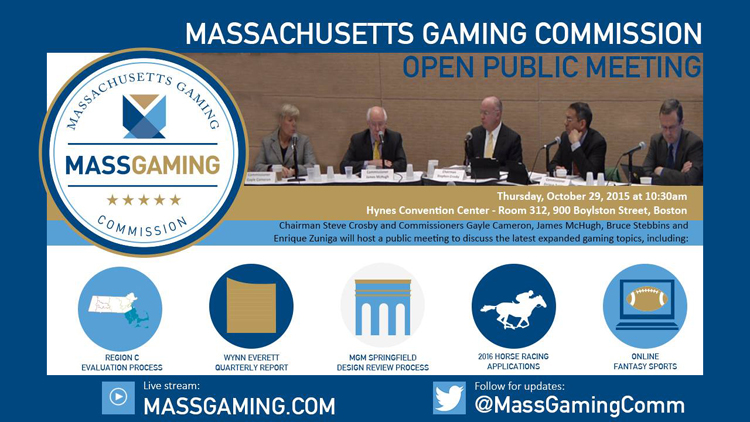On Thursday, regulators will revisit the southeastern Massachusetts casino issue, and while able to envision a scenario where a commercial casino and a tribal casino operate and compete within close proximity of each other, the chairman of the state gaming commission acknowledges that they’d likely cannibalize each other.
Earlier in the year voters narrowly approved a Brockton Massachusetts Casino project by a margin of 143 votes. Furthering the process, an extended deadline was met and the necessary applications were submitted for a Southeastern Mass casino license at the beginning of October. The 235 page Phase II application was accepted by the Massachusetts Gaming Commission (MGC). The commission will now move forward with a process which could result in a license next year for Mass Gaming & Entertainment/Rush Street Gaming, which is developing a commercial casino at the Brockton Fairgrounds.
Meanwhile, less than 20 miles away, in Taunton, officials from the Mashpee Wampanoag Tribe believe that the U.S. Department of the Interior’s September 18th approval of a land into trust application, effectively clears the way for construction of their $500 million Project First Light casino resort. According to Gaming Commission Chair Steve Crosby, “they can coexist.” Prior to Thursday’s public meeting to discuss expanded gaming at Boston’s Hynes Convention Center, Crosby added, “They would cannibalize one another. Neither one of them would do as well,” according to WickedLocal.
Massachusetts would not receive taxes from the tribal casino if there were two casinos in the region. Crosby acknowledges that the 2011 casino law passed by voters allows for three commercial casinos and a slots parlor within the state and “contemplates” possibly four casinos. However, the tribe possesses a state approved compact and the long standing argument by proponents is that legalizing casinos opens the door for tribal casinos.
According to Crosby, “It would not be as desirable,” adding, “Nobody wants four casinos. Nobody wants two in southeastern Mass. But we owe it to the commercial folks to take a look at what they’re telling us, see what their argument is and as you said there are hurdles still in the way of the tribe. It is not a done deal.” Crosby said that it’s possible that casino plans could be tied up by lawsuits from up to 15 years.
Two of three commercial resort-casino licenses have already been issued, one to the embroiled Wynn Everett casino near Boston and the other to MGM Springfield. Plainridge Park, which opened this summer picked up the state’s slot parlor license, and is not considered a full casino



